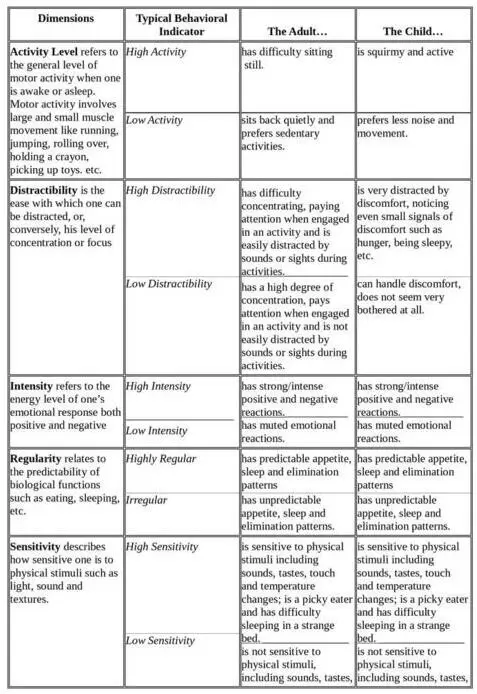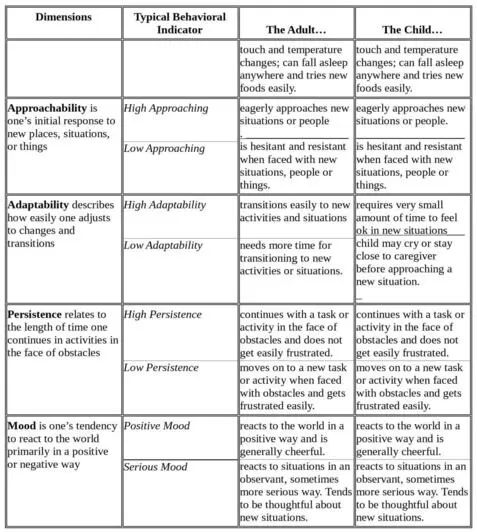TEMPERAMENTS
Temperament is an important feature of social and emotional health. Temperament describes the way we approach and react to the world. It is our own personal “style” that is present from birth.
When parents understand their child’s temperament as well as their own, it can help guide them toward effective parenting and discipline techniques for that child. Parents can use this knowledge to create a good parent-child relationship.
There are three general types of temperaments often referred to as easy going, slow to warm, and active.

Easy going children
Easy babies are generally adaptable, exhibit a positive mood, and exhibit average activity levels and regular body functions. Individuals who are considered “Easy or Flexible” are high in adaptability, low in frustration, calm, and moderate in activity levels and intensity, positive in mood, interested in new experiences, and Regular in such biological rhythms as sleeping and eating habits

Slow To Warm Up Or Shy
Slow-to warm-up babies have initial difficulties with new situations and routines but with time and sensitive care will often adapt. Individuals, who are considered “Shy or Slow to-Warm-Up” exhibit mild intensity of responses, are low in adaptability, respond negatively to change or withdraw in new situations, are cautious and are shy with new people.

Difficult Temperaments
Difficult babies exhibit more negative moods, irregular body functions (feeding, sleeping and elimination patterns) and have difficulty adapting to new situations. Individuals who are considered “Difficult or Feisty” tend to be intense in their responses (e.g. screaming or loud laughter), irregular in feeding and sleeping habits, low in adaptability, easily upset and negative in mood. They show irregularity in activity level, withdrawal in response to new situations, and exhibit high levels of frustration.
Children may fall into one of the three types of temperament but often have varying behavior across the common temperament traits. There are nine common traits that can help to describe a child’s temperament and the way they react to and experience the world. These traits are outlined below:


